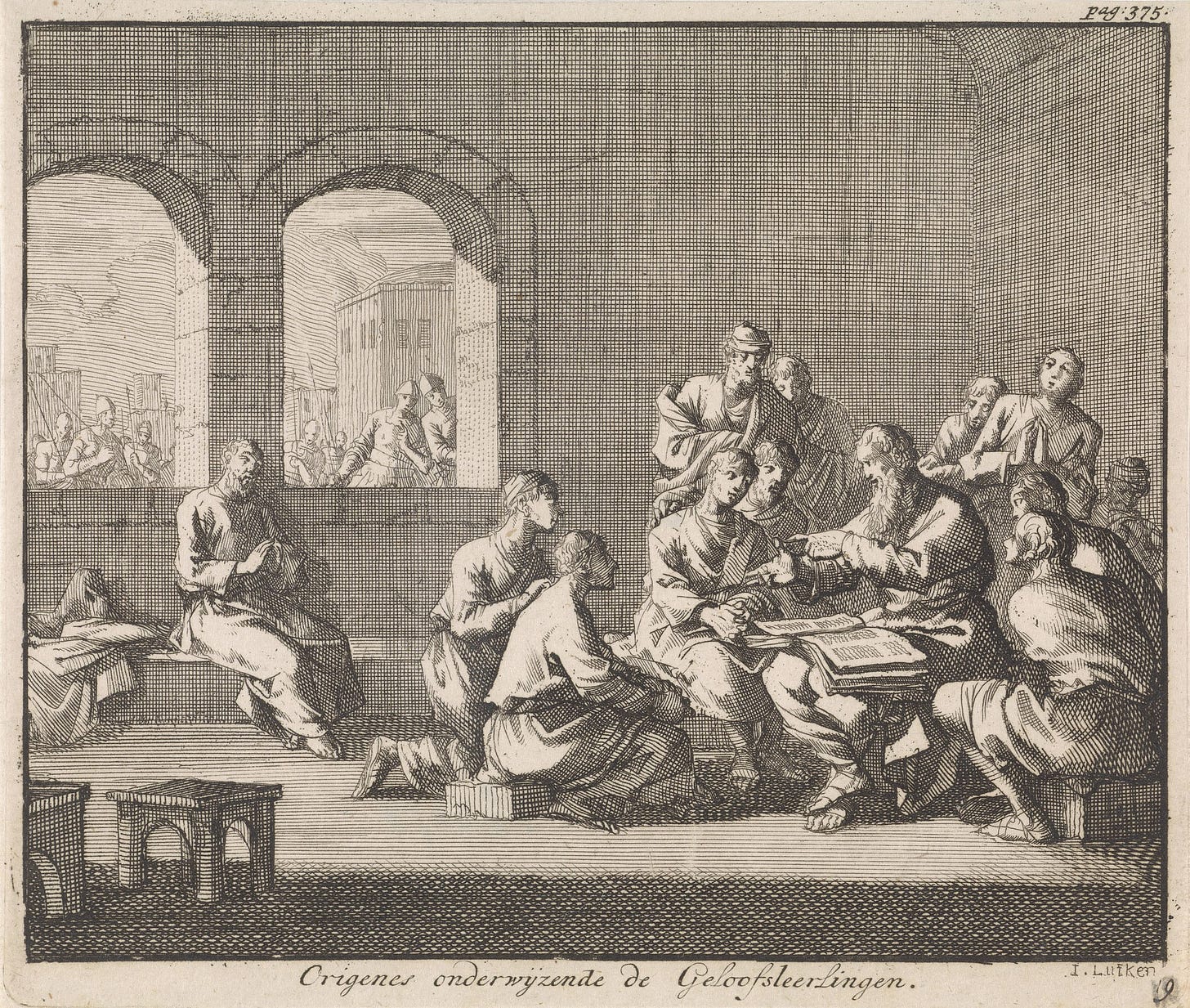Origen of Alexandria’s (c. 185–254 CE) theological writings reveal a profound emphasis on the soul’s ascent to God through contemplation, allegorical interpretation of Scripture, and direct communion with the divine. His mystical theology, deeply rooted in Christian Platonism, blends intellectual rigor with spiritual depth, focusing on the transformative journey toward union with God. While some of his ideas, like the pre-existence of souls, later sparked controversy, his mystical vision significantly shaped early Christian thought, particularly in the Alexandrian tradition.
The Soul’s Ascent to God: Origen’s mystical theology centers on the soul’s journey from estrangement to divine union, a process he describes as a return to its original state of contemplation of God. Influenced by Platonic and Neoplatonic ideas, he taught that souls, created as intellectual beings, fell from their primal unity with God through distraction or sin. In works like On First Principles and his Commentary on the Song of Songs, Origen outlines a spiritual ascent through stages of purification (ethical life), illumination (knowledge of divine truths), and union (contemplative beholding of God). This ascent is not merely intellectual but deeply experiential, requiring the soul to transcend material concerns and cultivate love for God. For Origen, mysticism is dynamic, involving a lifelong transformation where the soul progressively participates in God’s divine nature, culminating in theōsis or divinization.
Allegorical Exegesis as Mystical Practice: Origen’s approach to Scripture is a cornerstone of his mysticism, viewing the Bible as a living text that conceals divine mysteries beneath its literal surface. In his homilies and commentaries, such as those on John and the Song of Songs, he employs allegorical interpretation to uncover spiritual meanings, treating the text as a guide for the soul’s ascent. For example, he interprets the Song of Songs as an allegory of the soul’s (or the Church’s) passionate love for Christ, the divine Bridegroom. This exegesis is itself a mystical act, as it invites the reader to encounter God through contemplation of hidden truths. Origen believed that Scripture’s deeper meanings could only be grasped by those who have purified their hearts, making biblical interpretation a transformative dialogue with the divine Logos.
Contemplation and the Role of Christ: Central to Origen’s mysticism is the role of Christ as the Logos, the mediator who bridges the human and divine. In his theology, contemplation of Christ—both through Scripture and in prayer—enables the soul to ascend toward God. Origen emphasizes that Christ’s incarnation makes divine mysteries accessible, serving as the “image of the invisible God” (Colossians 1:15) through which believers can know and love the Father. In On Prayer and his homilies, he describes contemplative prayer as a direct encounter with Christ, where the soul gazes upon divine truths and is transformed by love. This contemplation is not reserved for an elite but is open to all who progress spiritually, though Origen acknowledges that full union with God may only be realized eschatologically, after the soul’s purification and restoration.
Eschatological Mysticism and Universal Restoration: Origen’s mystical theology is profoundly eschatological, culminating in his controversial doctrine of apokatastasis (universal restoration). He speculated that all souls, having undergone purification and instruction, would eventually return to God, achieving perfect unity in contemplation of the divine. This vision reflects his mystical optimism about God’s infinite love and wisdom, which he believed would ultimately overcome all separation. In On First Principles, he describes the end of history as a state where God is “all in all” (1 Corinthians 15:28), with souls fully participating in divine life. While this idea drew criticism for diminishing free will or suggesting universal salvation, it underscores Origen’s mystical conviction that the soul’s deepest longing is to rest in God, and God’s purpose is to draw all creation into eternal communion. His eschatology thus frames mysticism as both personal and cosmic, a journey toward universal divine harmony.





lovely article